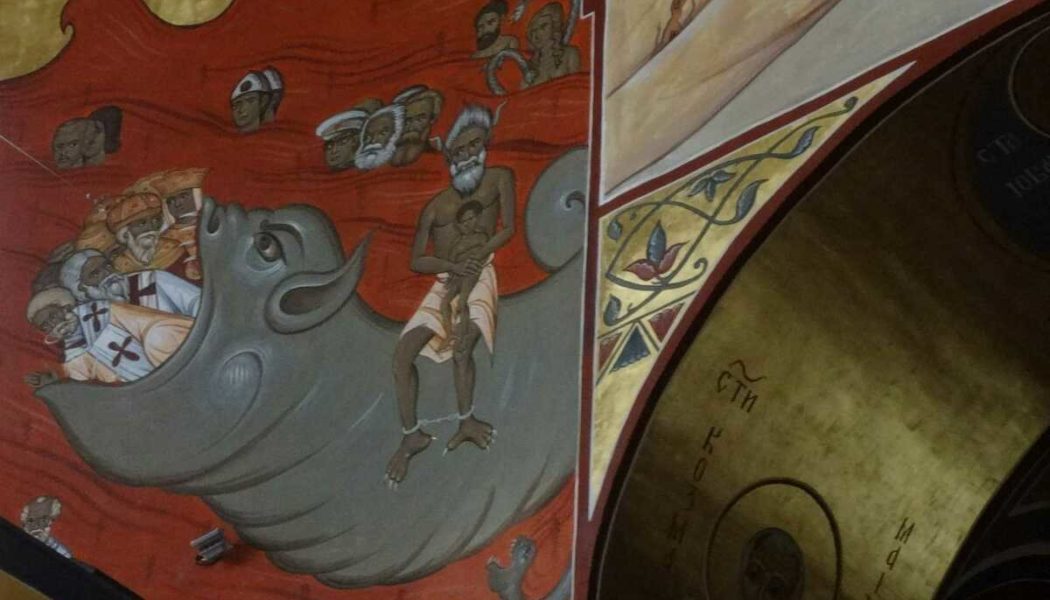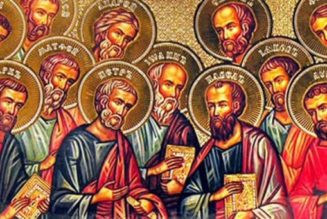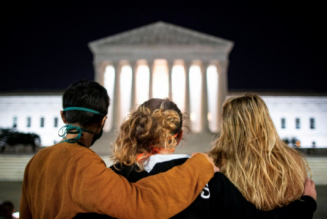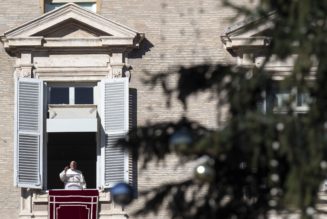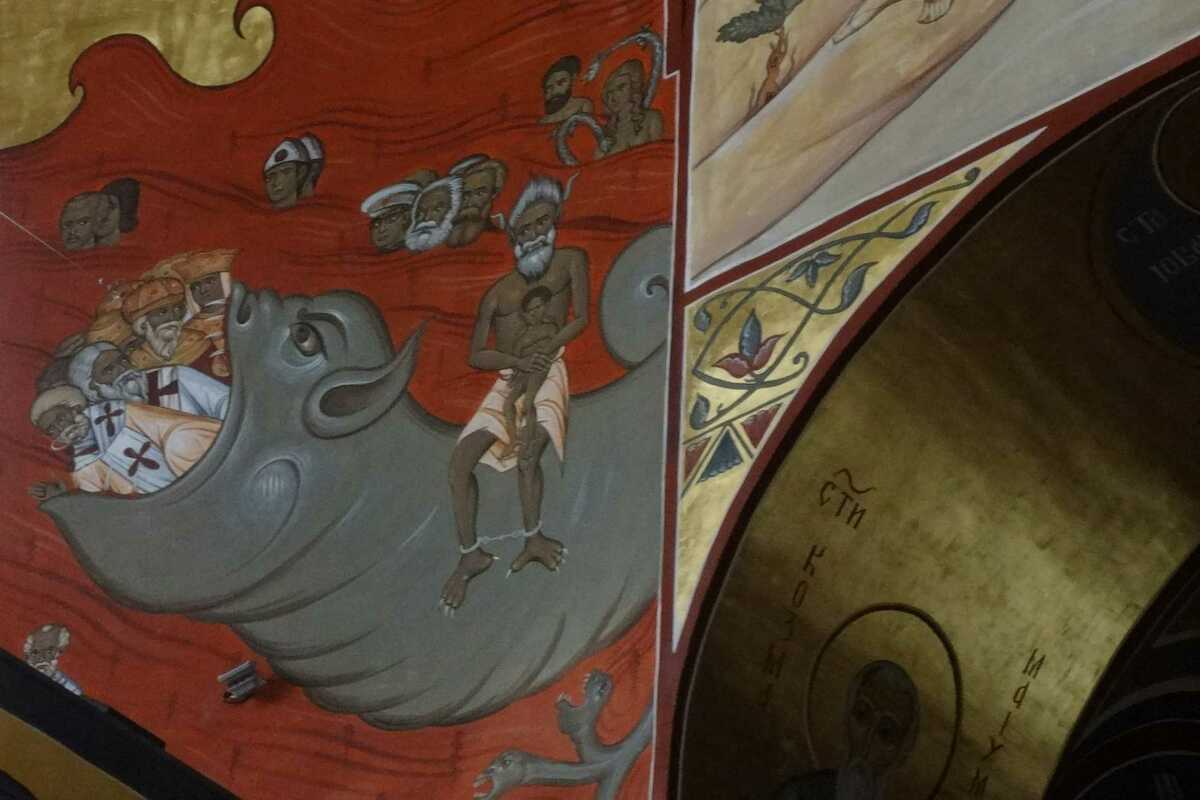
Some theologians and historians dispute today whether the belief that everyone will be saved (“universalism”) was condemned by the Second Ecumenical Council of Constantinople. Nevertheless, the fact that universalism might not have been condemned by that council constitutes nothing more than an interesting historical tidbit for orthodox Christians. Even if some great saints or a significant minority in certain ages of the Church held universalist beliefs, historical orthodox Christianity definitively came to reject universalism. But, given the interest in universalism today, it is helpful to say a few words on that point.
Let us be clear about our terms. Universalists think that all will be saved. Universalists are not saying that everyone will end up in heaven just by good luck; people who believe in the possibility of hell can believe that.[1] Universalists instead want to argue that it is not possible for anyone to end up in hell for eternity. Many defenders of universalism assert God would not be good if he allowed even the possibility of hell. More technically, then, universalists hold that it is a necessary truth that all are saved. This sets universalists apart from theologians like Hans Urs von Balthasar or Jacques Maritain who thought we might legitimately hope and pray that all people end up saved. These theologians are not universalists—although they are sometimes called “soft universalists”—because they held it was possible for people to end up in hell, and their views would not be implicated in what I am going to argue against, which is sometimes called “hard universalism.”
If it is a necessary truth that all will be saved, something makes it so. The only way it would be impossible for anyone to go to hell is,
- that God could not do otherwise than cause human beings to love him or
- that human beings could not do otherwise than love God.
- There is no third option.
Both of these options, however, entail heresy. This is why universalism has been seen as heretical by mainstream Christianity for millennia, for good reason.
On the one hand, if it were true that universalism requires God to be unable to do otherwise, then universalism requires heretical beliefs about God. This claim that God cannot do otherwise than he has chosen to do has been condemned by the Church in many different contexts, and the Fathers of both East and West have argued against it. It is uncontroversially heretical to say, e.g., that God could not have done otherwise than create the universe or become incarnate (for a quick overview, see Denzinger, nos. 374, 706, 1655, 1783, 1805). Orthodox doctrine is that God is free of necessity in what he chooses to do.
By way of example, David Bentley Hart is upfront that his version of universalism seems to require that God’s choices are necessitated. Since his critics are often accused of misrepresenting his views, I will quote at length his argument that God cannot do otherwise than what he does:
Every decision of the finite will is a collapse of indeterminate potentiality into determinate actuality, and therefore the reduction of limitless possibilities to the bare singularity of one reality. Yet that prior realm of possibility exists only because there is an inexhaustible wellspring of more original and transcendent actuality sustaining it. God, by contrast, simply is that actuality, in all its supereminent fullness: infinite Being, the source of every act of being. As such, he is infinitely free precisely because nothing can inhibit or limit the perfect realization of his nature, and thus, as Maximus says, he possesses no gnomic will; for God, deliberative liberty—any “could have been otherwise,” any arbitrary decision among opposed possibilities—would be an impossible defect of his freedom.
He continues:
God does not require the indeterminacy of the possible in order to be free because he is not some particular determination of Being, some finite reduction of potency to act; he is instead that infinite actuality upon which all ontic possibility depends. And in the calculus of the infinite, any tension between freedom and necessity simply disappears; there is no problem to be resolved because, in regard to the transcendent and infinite fullness of all Being, the distinction is meaningless. God is not a being choosing his nature from among a range of options; he simply is reality as such. And it is only insofar as God is not a being defined by possibility, and is hence infinitely free, that creation inevitably follows from who he is. This in no way alters the truth that creation, in itself, “might not have been,” so long as this claim is understood as a modal definition, a statement of ontological contingency, a recognition that creation receives its being from beyond itself and so has no necessity intrinsic to itself.[2]
Hart’s argument involves invalid reasoning. First, it is true that human will involves change; God’s will does not. What God is, he is always and undergoes no change. Second, it is also true God does not deliberate. He knows what he wants and wills it from eternity. Neither of these facts implies that God’s choices could not have been otherwise. God has infinite active power—different alternative states of affairs he could have caused—but God would not need to undergo change in order to have been able to do something other than he does. So too the claim that God’s choices would be “arbitrary decisions among opposed possibilities” unless his choices were necessitated is a false dilemma. God’s decisions to do otherwise would have reasons. Similarly, I see no reason God being infinite, etc., makes a distinction between freedom and necessity meaningless. If God could act on no other reasons than the reasons he has, we should just conclude God is not free, not that he (as it were) transcends the distinction. Being free involves being such that one can act on other reasons; necessitation looks strictly incompatible with freedom for that reason. In any event, it seems to make perfectly good sense (“meaningful”) to say God could have done otherwise than create the universe, or that God did not need to become incarnate.
It has always been deemed heretical, for orthodox Christians, that God creates the world necessarily. The claim that the world “has no necessity intrinsic to itself” is not what is necessary for our doctrine about God’s free choice. What is necessary is that God could have done otherwise, which is precisely what Hart rules out when he draws the heretical conclusion that “creation inevitably follows from who [God] is.” On the contrary, God’s eternal choices being free is just to say that God could have (from eternity) created something else or not created at all. If God were required to act only on the “best” reasons available to him, as Hart implies, God would be dependent on those reasons. Necessitating God’s choices is problematic because it implies that God’s goodness is dependent on creation or what he does. But God’s goodness is not dependent on creation. God acts in light of his own goodness, and there is nothing that is required for God’s goodness—nothing can increase or decrease it, because God is the Good prior to any choice he makes. He, therefore, does not need to create the universe to be who he is.
Because denying God’s freedom is serious, universalists typically focus instead on undermining human freedom. David Bentley Hart in his That All Shall Be Saved is, again, a good example. His two strategies for defending that everyone necessarily will be saved are, first, that the notion of mortal sin is somehow logically contradictory, so that making a choice to turn away from God eternally would be choosing completely arbitrarily, without reason, and contrary to all reason. Second, he argues that God’s love and benevolence would be incompatible with hell, because no possible reason can be given on which God neither intends the suffering of the damned for its own sake nor as a mere instrumental means for some other good.
The first is thus to argue the concept of mortal sin is incoherent. Hart begins with a conception on which freedom is choosing on the basis of reasons. A free person cannot merely act arbitrarily, for no reason, as that would be a contradiction in terms (That All Shall Be Saved, 174). To the extent that you lack knowledge of what you are choosing, or are in control of your decisions, you are not free and so not responsible; “true freedom is contingent upon true knowledge and true sanity of mind. To the very degree that either of these is deficient, freedom is absent. And with freedom goes culpability” (177). But, as Hart sees it, the only thing we have reason to love is God, who is the Good himself. Consequently, free creatures could only possibly reject God and choose something other than God (as in mortal sin) if they were to act irrationally. But this entails a contradiction: “to see the good and know it truly is to desire it insatiably and to obey it unconditionally, while not to desire it is not to have known it truly, and so never to have been free to choose it” (79–80). Mortal sin is necessarily an act for which no one could be responsible, and hence the idea of mortal sins for which you can be culpable entails a contradiction. And, if there are no mortal sins, there is no possibility of hell.
But these claims are unsound. While true that freedom is not acting on no reason, mortal sin does not require acting that way. Instead, we only need to say that not every reason that looks to you a good reason is in fact a good reason. You can act upon what seems to you to be good reasons, while simultaneously being responsible for those decisions because you acted on what was in fact a bad reason. This follows simply because there are situations when you could have known that you were not acting on good reasons and you chose to act anyway. In short, culpable negligence is real. If culpable negligence is real, then it seems to me there is no ground to argue the concept of mortal sin entails a contradiction. You do not need to have God’s own knowledge to know “well enough” that something is wrong.
Logically speaking, I would argue that you only need three truths to get you to the possibility of hell:
- People can want things that do not correspond to what they ought to want (and do not necessarily or naturally want to love God).
- Learning new facts about the world, God, or yourself need not change what you want.
- God does not need to change what you want.
By your free choices then
- You can choose to love things that orient you away from God and your true source of happiness in him.
- Then, even given an infinite time, there is no necessity that you learn anything new about yourself or the cause of your suffering that would make it impossible for you to do anything else except love God. This is to affirm that humans are free. A person does not need to act on any one set of reasons they have available to them, but can always reconsider the reasons for which they act. Nothing outside of them necessitates their choices (i.e., which reasons they act upon).
- And, similarly, God is under no obligation to break you out of this state, so you could persist in it forever.
While it is certainly true that we all act out of love of the Good, abstractly speaking, our choices involve choosing to make ourselves into persons who are oriented toward a particular conception of that Good. We do not all have God as our chosen particular understanding of the Good. We know that not only can people love something other than God, they do not even need to believe God exists or believe in God by faith. Atheism is a real possibility. Further, if Hart’s argument were right that we could not rationally choose anything opposed to God, who is in fact the Good himself, this would mean everyone possesses supernatural love of God necessarily, since that love just consists in having God as our chosen end. Obviously, if we could not stop loving God, there would be no need for Christ’s Passion, the sacraments of baptism or penance, and so forth, because everyone would necessarily be in a state of grace. For many reasons, then, this first strategy of arguing that mortal sin is incoherent relies on plausible-sounding claims which, when examined, turn out to be unsound.
Traditionally, orthodox Christians have argued that God merely permits moral evil, such as hell, rather than intends it either as a good in itself or as an instrumental means for achieving something good. God allows moral evil—as John Damascene does in Book II and III of his Exposition of the Orthodox Faith—because God wants free creatures, as only free creatures can be in relationship with him. The reality of creatures who are really free entails the possibility of moral evil.
Hart’s second strategy is to argue God’s benevolence is not compatible with hell because no possible good reason can be given for God to permit it. As he puts it, in short, hell’s existence would make it impossible to understand the way in which God is Good (55). Hart argues that that there can be no distinction between what God permits and positively intends. “Under the canopy of God’s omnipotence and omniscience, the consequent is already wholly virtually present in the antecedent” (82). The idea is then that, since everything is in God’s control, he can only allow moral evil of the damnation-deserving sort if he positively intends it, either as an end or as an instrumental means to some end. He gives different arguments to support that claim.
For example, he proposes that if God permits moral evil to persist eternally, then God wills it as part of his eternal plan for the universe (because God is eternal and omnipotent), and, thus, moral evil must be positively willed (71). He also argues that God permitting the possibility of damnation is to already have chosen to use that damnation as a means to an end. “To venture the life of your child for some other end is, morally, already to have killed your child” (85). Or, because God is omnipotent and created the universe ex nihilo, he could have accomplished anything at all (90). God could have created free creatures and made it impossible for human beings to sin. Finally, Hart argues that God would not be “all in all,” or finally victorious in his Providence for the universe, if he allowed hell (68–69); God could not simultaneously really will that “all are saved” and allow anyone to be damned.
In a related vein, Hart argues that there can be no eternal or perfect happiness if even one person is lost to damnation. In sum, “true spiritual love could never abide the sight of souls suffering in hell” (157). Hart argues for more than is strictly speaking necessary for that conclusion—he argues, e.g., that being a person is constituted by our relations to all other persons; “who are we, other than all the others who have made us who we are, and to whom we belong as much as they to us? We are those others” (78). But Hart’s point is simply that the existence of hell would make it impossible for anyone, let alone God, to be eternally happy. True love of others could not co-exist with even the possibility that anyone could be damned.
Now, strictly speaking, we know it must be false in at least one instance that every person’s happiness depends on every other. God’s happiness exists in communion with that of the other Trinitarian persons; God’s happiness does not depend on his creatures. He shares, freely, his happiness with us, but his own happiness does not depend on it. Similarly, given what I have said earlier, what it is to be free (for both God and humans) is that one’s actions are not necessary. If so, then the first argument is false. Not even God could have made a creature that was naturally incapable of sinning because this would entail a logical contradiction (as Aquinas says in De Veritate, q. 24, a. 7). Creatures would not be free if they were necessitated to act in some specific way. God’s omnipotence does not extend to doing things that are nonsensical, and a necessitated free person is a contradiction in terms.
Finally, while God’s grace is necessary to love God and be a good person—there are some things not in our control to will!—the orthodox tradition condemns the view that grace makes human decisions necessary (e.g., against Calvin, Luther, and Jansen). Specifically, God’s grace can be resisted. For that reason, while we need God’s grace to do good, all evil comes from us, and God in no way causes that evil. Even God’s decision to predestine someone to glory allows them to resist God’s grace; and God never “sets up” anyone to go to hell. Hell is a product of our free choices, not God denying us something we need or pushing us down that path. There is then nothing about God’s plan for creating free people, even when God knows that we will reject his love, that means he is causing or desiring that we reject him.
While metaphysically accurate, such responses can be unconvincing. God looks cruel if he creates human beings just to be damned. Hart’s claims that God must be “all-in-all,” victorious over evil, and comprehensibly the supreme Good is merely to say God must have a suitable justification for permitting hell. What is missing in response to Hart’s second strategy is a convincing justificatory reason God might have for permitting hell that is compatible with his goodness. We know in general that God only allows evil because he can produce out of it some greater good. Even for Hart, natural and moral evil would need to be allowed by God, and God does not desire to inflict suffering upon anyone even if he permits it for some good reason. But, if this is true, then there is no principled logical reason that God cannot have a good reason to allow even that moral evil that leads to damnation. I cannot see how we can know that God would not have such a good reason—God’s reasons and omnipotence are far beyond our comprehension. If we merely stick to logic, there is nothing contradictory here: we should broadly conclude God permits the possibility of damnation only because God loves us and wills our good. Whatever those reasons are in particular, God does “not desire the death of the wicked but that the wicked turn from his way and that he live” (Ezek 33:11).
All things considered, though, do we need to know God’s reason for hell? We do not know God’s reasons for allowing any specific instance of moral evil, or evil in general, and it is not usually profitable to speculate about them. We know God is Good and does not will evil. Hell cannot be mere schadenfreude, God or the blessed rejoicing in the suffering of others as if out of delight for revenge. Nor is God merely using hell to frighten us into good behavior. We know this is not how God works; the reason God has for hell is not merely that the suffering of the damned is good for others. Orthodox belief does not hold any of that. Our belief is that hell is essentially the natural torment of a broken life in eternal separation from God, not something God imposes by arbitrary diktat on people who forget to check the right boxes (see Catechism of the Catholic Church, §1033–1037).
What makes us uncomfortable is the possibility that God’s permission of evil involves someone’s suffering being a mere instrument for the greater good of others. That would be a crude utilitarian approach that justifies all manner of evil. Stories can help expand our imaginations to match the logical limits of what we know is possible and explain the truth of our orthodox faith. C.S. Lewis’s The Great Divorce, for example, remains one of the best catechetical tools for understanding orthodox doctrine. Lewis expands our imaginations in the directions of being able to see the way in which the doctrine of hell forms part of our greater doctrine about God’s love for us and Christ’s redemption. At the core of the story is the fact that the damned can leave hell for heaven at any time. Christ’s victory was to open the doors of paradise to the damned. If anyone remains, it is only because (as Lewis said in The Problem of Pain) “the doors of hell are locked on the inside.”
I will end by adding one story alongside Lewis’s. One of the hardest things I could ever imagine is dealing with the suicide of a loved one. I imagine those are in a similar situation to those who die and find their loved ones in hell. I imagine coming into Paradise only to find your beloved standing on a cliff, looking away from the light of Mount Zion, turning away from the festal gathering of angels, and toward the darkness off in the depths. Your beloved is ghostly, hardly there, disappearing into the air. The blessed, by contrast, shining with the bright light of God’s glory, are more solid and real than ever in life.
You ask them, “What are you doing? Don’t you want to be with us?”
“There is nothing for me there. Nothing in this world for people like me.”
“Why do you think that? I’m here with you. Not only me, but God Himself is waiting—Christ has come with me to bring you back to the banquet!”
“Leave me alone. I want to die, forever, and be gone. Nobody loves me.”
“But we love you!”
And then your beloved jumps. Off the cliff, into the darkness of nothingness.
What would anyone that really loves do in this moment? What could we do except jump to grab their hand before they fall into the darkness? No matter how ghostly and insubstantial, we would find and hold on to whatever could be grasped to hold them up from the abyss, just as the hand of the Crucified reaches out to grasp us from going down into the darkness too.
“What are you doing? This is madness! We want you to be with us. We love you!”
Refusing to look up, hurt and confused, our beloved continues to say, “You’re lying. Let me go!”
As long as we hold on, our beloved continues to be hurt and confused and tormented by the grasp of that hand. They cannot understand why anyone loves them, that they could be loved, that there could be anything for them in the presence of God.
Do you let go?
I do not think anyone that really loves them could do that, not even if they held on for a million years. That grasp is an expression of his mercy and love for his son. As long as we hold their hand, we have brought Paradise to our beloved, as far as that person can accept it. Our beloved might never come up, might resist forever, but it is good for them that we hold them in our love.
My claims terminate in a paradoxical conclusion: that hell, or its possibility, must be an expression of God’s love and mercy. But this must be true, for any orthodox Christian. Nobody who turns away from God puts themselves outside of God’s care. “If we are not faithful, He remains faithful, because He cannot be false to Himself” (2 Tim 2:13). We remember the great doctrine that God’s love is not like ours. He does not respond to what we are, but, as St. Augustine pointed out, makes us what we are. People would not exist in hell if God did not love them. An Eastern saint (Isaac of Nineveh) one proposed that one and the same fire of God delights the saints in heaven as it torments the damned in hell. God’s love is received “according to the mode of the receiver.” God will never let go, but this is good: God’s love will be victorious even in hell for that reason.
In conclusion, universalism is best viewed as an attempt to resolve a moral problem of evil. We wonder why an all-good God can permit the possibility of people doing things that are morally evil, even to the extent of turning against God for eternity. Universalism ends up trying to solve that problem by dissolving it: proposing a story of salvation which, like Hart’s, entails that there is no “real” sin, only people who are ignorant of God’s goodness. He thus makes stark claims that freedom consists only in choosing well: “We are free not because we can choose, but only when we have chosen well” (173). The problem with the universalist’s solution is that this move gets rid of traditional Christianity in the process. Thus, on traditional Christianity, the possibility of hell is the reverse side of the Gospel of God’s grace: the Cross is senseless without sin. The only thing that stands between us and God is our will. The Cross is necessary to save us from ourselves, from what keeps us from God. That is a critical part of Christian doctrine. One would need to give a radical reinterpretation of the Cross in order to preserve its place after eliminating moral evil.
Universalism would not be true without denying either human freedom in salvation or divine freedom in creation or redemption. Universalists thus tend to think that God would be to blame for people going to hell, if he allowed its possibility because God would have set us up to fail. The problem that leads to universalism is a failure of imagination: because universalists accept a picture of grace as irresistible, on which freedom is an illusion, the possibility of hell can only mean for them that God positively delights in the suffering of those whom he set up to fail.
Universalism is Calvinism about salvation, only with a pretty face. But these beliefs that we are free in our choice to love God, and that God is free in his choices to love and redeem us, are central to Christianity’s story of salvation. Universalism has been definitively condemned as heretical for good reason: eliminating freedom from the picture leaves us with an unrecognizable vision of God and ourselves.
[1] Orthodoxy only requires belief, at most, that Satan and his angels are in hell, and maybe Judas. The fate of everyone else is beyond our ken. They could end up—for all we know—in heaven.
[2] David Bentley Hart, You Are Gods (Notre Dame, IN: University of Notre Dame Press, 2022): 115–116.
Join Our Telegram Group : Salvation & Prosperity
